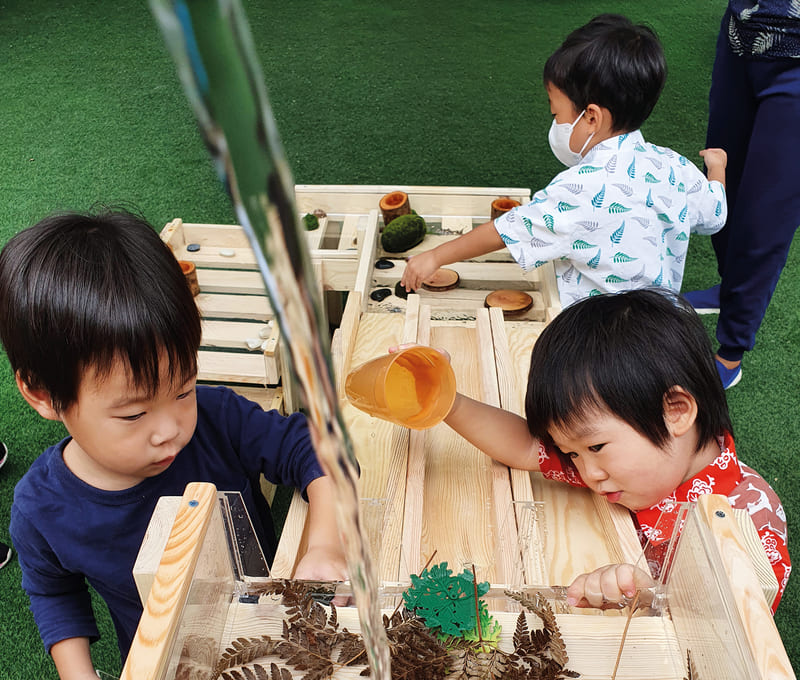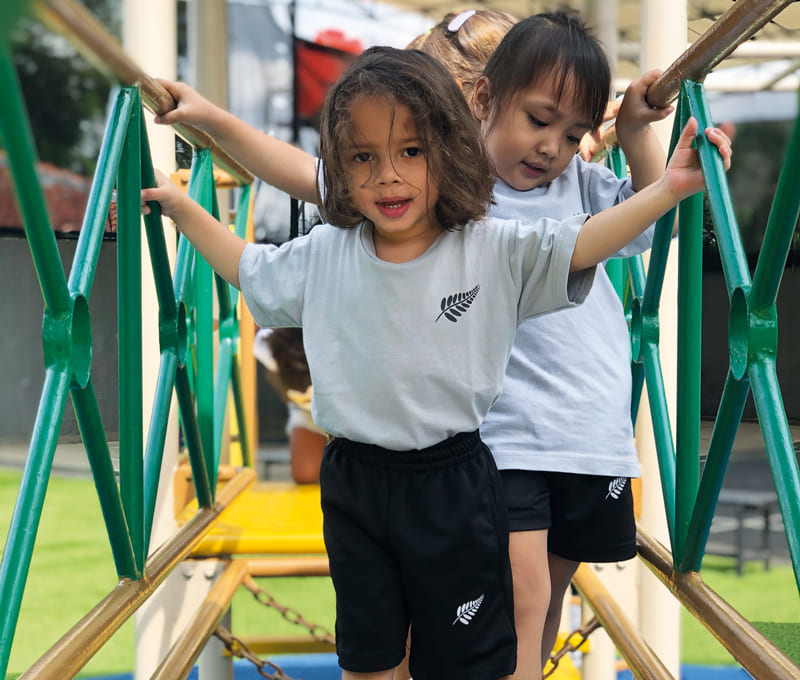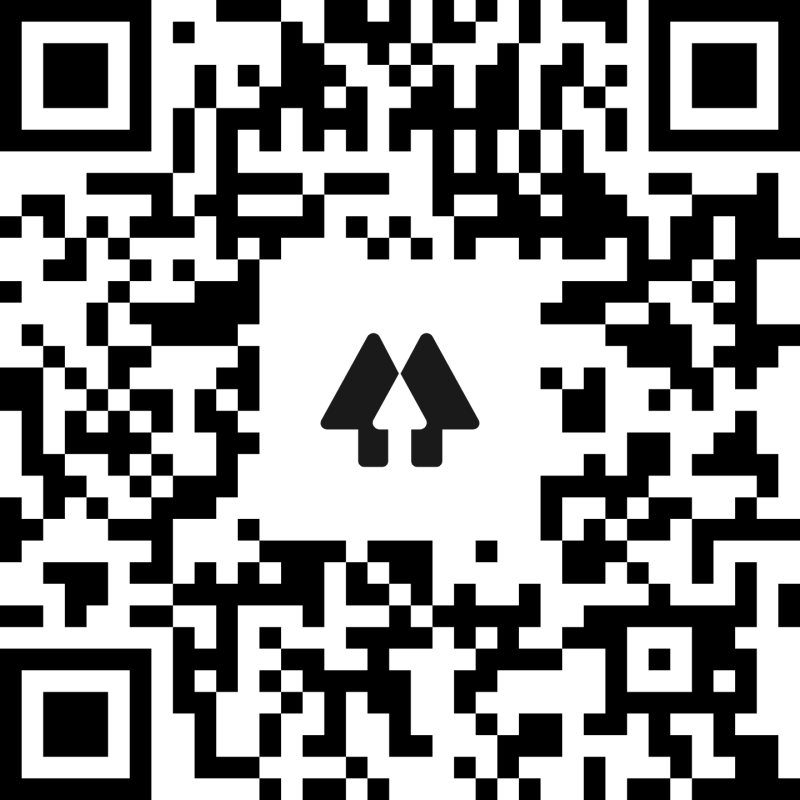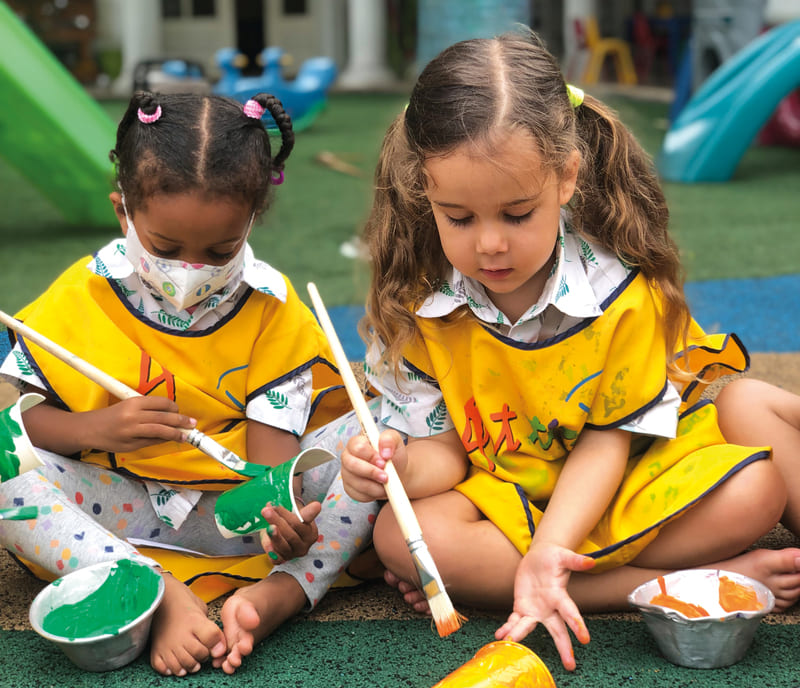Early childhood is crucial for setting a strong foundation for a child’s future success and well-being.
During the early years, a child’s cognitive, social, emotional, and physical development is shaped, making early years of education an essential component of their overall growth and development. Therefore, it is essential to use effective curriculum frameworks that promote holistic and culturally responsive approaches to teaching and learning.
At New Zealand School Jakarta, we follow the New Zealand Early Childhood Framework. The curriculum is called “Te Whariki“, which comes from the Māori language and translates to “woven mat“. The idea is that all the principles, values, strands and learning goals weave together to form a holistic framework of education and help children develop as whole human beings. These areas of growth are not isolated. Instead, they connect, interweave and supplement each other.
Part 1: The Principles
The four principles of the Te Whariki are empowerment, holistic development, family and community, and relationships.
Empowerment
For children to reach their potential, they should be respected and valued. We aim to empower children by giving them agency and the confidence to create and act on their own ideas and explore areas of knowledge that interest them. Moreover, provide opportunities for children to think, make choices and express their views and opinions.
Holistic Development
It is essential that education focuses on all aspects of human development. At school, we aim to provide a balanced curriculum that nurtures the intellectual, physical, spiritual, social and emotional aspects of our students’ lives. A holistic approach views the child as a capable learner, full of potential and ready to learn and grow.
Family and Community
Family and the wider community are integral parts of our Early Years programme. Children learn best when their identity, culture and language are affirmed and valued. A strong relationship between school and family will enable families to support their child’s learning at home and teachers can learn about the child’s interests, strengths, and needs so that they can build on what children bring with them to the classroom.
Relationships
Positive relationships between teachers, children and families are important for a child to feel safe and learn effectively. It reminds us to support children while they build relationships with other people, places and things. In addition, it is important for children to understand their relationship to the natural world and the impact they can have on other people and the planet.
Part 2: The Strands
The five strands of the Te Whariki are well-being, belonging, contribution, communication, and exploration.
Well-being
This strand focuses on maintaining a healthy lifestyle and nurturing emotional well-being. It is important for children to feel safe from harm and in an environment where they feel comfortable expressing their needs and feelings.
Belonging
Belonging focuses on building connections and links between school, family and the wider community. It is important for children to feel they belong and are familiar with the routines and customs of the place they are in. They should understand the limits and boundaries but also feel comfortable taking age-appropriate risks and asking questions.
Contribution
Contribution focuses on providing opportunities for all students to learn, participate and contribute to the school community. Children should feel valued and affirmed as individuals with their own interests and experiences but also encouraged to learn and collaborate with others.
Communication
This strand focuses on the development of verbal and non-verbal communication skills for a range of purposes. Children should be given opportunities to express their feelings and ideas. They should be able to understand, enjoy and use language in creative ways.
Exploration
This strand focuses on nurturing curiosity and reminds us that play is a valuable mode of learning. When children play, they can explore, discover, experiment, and solve problems in imaginative ways. We should give children opportunities to develop working theories about how the world works and as they explore, they learn strategies for thinking, reasoning and working with others.
At New Zealand School Jakarta, we aim to create a safe, nurturing and stimulating environment where children can explore, learn, and grow. We believe that by following the Te Whariki framework, we can provide a strong foundation for our students’ future success and well-being. We also believe that by working in partnership with families and the wider community, we can create a rich and meaningful learning experience that fosters a love for lifelong learning.
To learn more about New Zealand School Jakarta, visit us at www.nzsj.sch.id or by scanning your phone camera over the QR code below.





